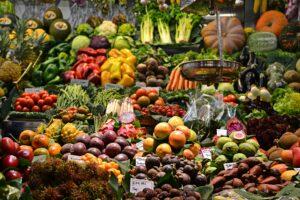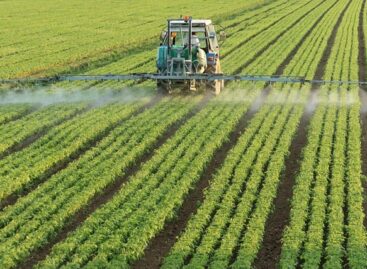Hungarian fruit growing faces serious challenges
Hungarian fruit growing faces a difficult and uncertain period, which is primarily determined by problems caused by climate change, labor shortages and the aging of plantations, said Ferenc Apáti, president of the Hungarian Fruit and Vegetable Association (FruitVeB). From the point of view of the future of the sector, special attention must be paid to the support opportunities of the Common Agricultural Policy (KAP), as well as to the appropriate developments and investments.

Ferenc Apáti said that the condition of Hungarian orchards has deteriorated in recent years: the average age of plantations has increased, while their condition and production potential have decreased. No significant progress has been made in the field of irrigation either, which is particularly worrying given that the effects of drought and heat waves are still significant. Due to climate change, the sector is increasingly exposed to spring frost damage, severe thunderstorms, ice storms, and extreme weather conditions, such as long periods of heat and drought or extreme rainfall.
The horticulture tenders starting in the fall will be crucial for the sector, providing the opportunity to plant plantations, build greenhouses and cold stores, and develop post-harvest technologies. According to Ferenc Apáti, the greatest interest among producers is in greenhouses, film houses and investments necessary for industrial processing. At the same time, interest in planting plantations is expected to be lower, while the modernization of plantations is more of a preferred goal.
The president of FruitVeB emphasized that without protection against the harmful effects of the weather – such as irrigation systems, ice nets and frost protection technologies – fresh market fruit production becomes increasingly risky. Only those who are able to create intensive, protected plantations should start fresh market production. Those who do not have sufficient capital and expertise can only concentrate on the production of industrial raw materials, which, however, provide significantly less income.
According to Ferenc Apáti, the sector needs an almost complete transformation and renewal in order for Hungarian fruit growing to remain competitive in the future. Developments and the use of appropriate subsidies will be key to increasing the resilience to weather challenges and the sustainable development of the sector.
Related news
European Court of Auditors: EU Commission proposals affecting the common agricultural policy may cause uncertainty
🎧 Hallgasd a cikket: Lejátszás Szünet Folytatás Leállítás Nyelv: Auto…
Read more >The lists of products of the Agro-ecological Program have been updated this year as well
🎧 Hallgasd a cikket: Lejátszás Szünet Folytatás Leállítás Nyelv: Auto…
Read more >Related news
The Store of the Future opens again at the SIRHA Budapest exhibition! (Part 1)
🎧 Hallgasd a cikket: Lejátszás Szünet Folytatás Leállítás Nyelv: Auto…
Read more >The impact of the forint exchange rate on GDP growth
🎧 Hallgasd a cikket: Lejátszás Szünet Folytatás Leállítás Nyelv: Auto…
Read more >







